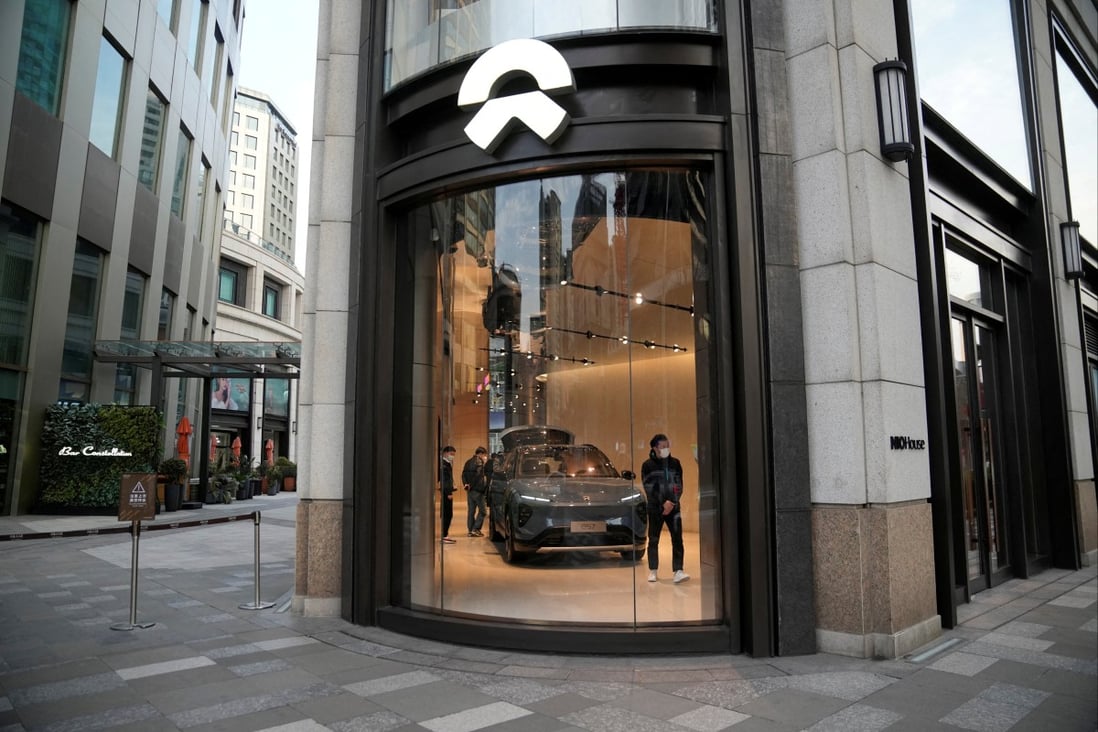The battery from Beijing WeLion New Energy Technology, which was first unveiled in January 2021, will only be rented to Nio car users, Nio president Qin Lihong says
The 150kWh battery can power a car up to 1,100km on a single charge, and costs US$41,829 to produce

Chinese electric vehicle (EV) start-up Nio is gearing up to launch its much-anticipated solid-state battery that can provide the world’s longest driving range, giving it an edge in the highly competitive market.
The battery, which was first unveiled in January 2021, will only be rented to Nio car users, and will be available soon, president Qin Lihong said at a media briefing on Thursday, without providing an exact date.
“The preparations for the 150 kilowatt-hour (kWh) battery pack have been [going according to schedule],” he said. While Qin did not give details about the battery’s rental costs, he said Nio clients can expect it to be affordable.
The battery from Beijing WeLion New Energy Technology costs 300,000 yuan (US$41,829) to produce.
Solid-state batteries are seen as a better option than existing products because the electricity from solid electrodes and a solid electrolyte is safer, more reliable and more efficient than the liquid or polymer gel electrolytes found in existing lithium-ion or lithium polymer batteries.
The Beijing WeLion battery can be used to power all Nio models, from the ET7 luxury sedan to the ES8 sport-utility vehicle. An ET7 fitted with the 150kWh solid state battery can go as far as 1,100km on a single charge.
The EV with the longest driving range sold globally at present is the top-end model of California-based Lucid Motors’ Air sedan, which has a range of 516 miles (830km), according to Car and Driver magazine.
An ET7 with a 75kWh battery has a maximum driving range of 530km and carries a price tag of 458,000 yuan.
“Because of its high production cost, the battery will not be well-received by all car owners,” said Chen Jinzhu, chief executive of Shanghai Mingliang Auto Service, a consultancy. “But commercial use of the technology represents a significant step for Chinese carmakers as they vie for a global leading position in the EV industry.”
Nio, along with Xpeng and Li Auto, is viewed as China’s best response to Tesla, whose models feature high-performance batteries, digital cockpit and preliminary autonomous driving technology.
Nio is also doubling down on its swappable-battery business model, which enables drivers to get back on the road in minutes rather than wait for their car to charge, with plans to build 1,000 additional stations this year using a new, more efficient design.
Qin said the company is on track to achieve its goal of establishing an additional 1,000 battery-swapping stations before December, bringing the total to 2,300.
The stations serve owners who opt for Nio’s battery-as-a-service, which slashes the initial price of buying the car but charges a monthly fee for the service.
Nio’s new stations can swap 408 battery packs a day, 30 per cent more than the existing stations, because they feature technology that automatically navigates the car into proper position, the company said. The swap takes about three minutes.
In late June, Nio, which is yet to turn a profit, said it would receive US$738.5 million in fresh capital from an Abu Dhabi government-backed firm, CYVN Holdings, as the Shanghai-based firm boosts its balance sheet in China’s cutthroat EV market.
Post time: Jul-24-2023




